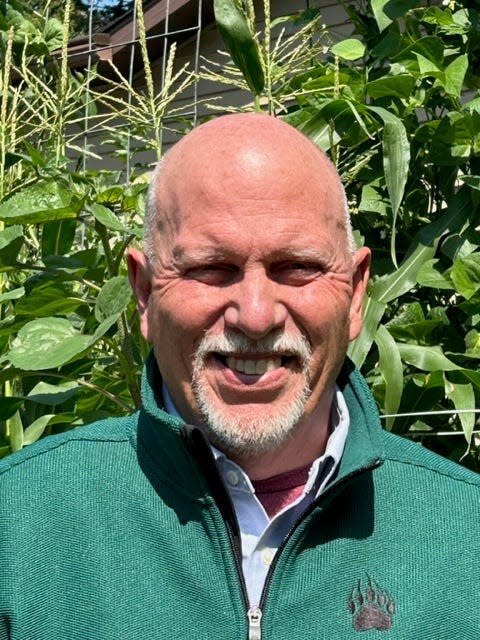A conservation-forward farm bill would let us 'leave it better than you found it'
As Congress starts to move beyond its weeks of paralysis following the ouster of House GOP Speaker Kevin McCarthy, members would do well to heed the advice of my Grandpa Olsen. He said to me, “Tim, when you rent a farm, you are to leave it better than you found it.”
I heard my grandpa’s voice echoed by farmers and church leaders at the Evangelical Environmental Network’s Iowa Faith and Agriculture Roundtables discussing the farm bill, whose future, together with that farmers and producers across Iowa, is now in limbo. House Agriculture Committee Chairman Glenn “GT” Thompson has said the uncertainty about the House speakership fight has “blown up any meaningful legislation,” making the farm bill and Iowa farmers collateral damage of congressional paralysis.
In contrast, the Iowa farmers who gathered in restaurants, churches, and conference rooms for EEN’s Faith and Agriculture Roundtables modeled a different style of leadership. We heard from farmers working to "leave it better than they found it” even when it was hard. This included adopting novel management technologies like strip till, no till, and cover cropping. While they confessed steep learning curves and being the “crazy neighbor,” they stuck with it and are now reaping the rewards: higher yields, better soil health, lower input costs, and greater resilience to weather extremes, like this year’s drought, and less reliance on the safety net.
Ray Gaesser, former president of the American Soybean Association, and host of EEN’s roundtable at the Iowa Soybean Association in Ankeny, is a pioneer of agriculture innovations in soil health and water quality. Calling his 5,400-acre farm near Corning, Iowa, “heaven on earth,” he describes being a farmer as a privilege with the responsibility to care for the land to serve God and his community.
While the Gaessers fully implemented no till in their corn-soybean rotations in 1991, a destructive 4-inch-per-hour rainstorm prompted them to start cover cropping to save their soil from erosion. Ten years later, Ray reports faster water infiltration, improved nutrient sequestration, resilient soil biology, improved crop yields, and reduced input expenses. Ray’s experience mirrors findings of a 2021 study documenting a net income increase for Iowa farmers who adopted soil conservation practices of $63.85 an acre for corn and $36.79 an acre for soybeans. Despite these savings, only 4% of Iowa farmers currently use cover crops.
For the evangelical farmers at EEN’s farm bill roundtables, passing down a “creation care legacy” not only makes dollar-sense but carries a sense of calling.
Iowa farmers are on the front lines of caring for the soil. Farm bill conservation programs empower farmers and landowners to live into the holy duty of enhancing soil health. The 2023 farm bill reauthorization represents a critical opportunity to help Iowa farmers achieve their soil health mission. To do this, new conservation funding passed last year must be preserved in full.
Congress must come together now to swiftly advance a conservation-forward farm bill, or risk failing our farmers.

The Rev. Tim Olsen is Upper Midwest Coordinator for the Evangelical Environmental Network.
, creationcare.org. In addition to serving as a pastor for 14 years in Iowa churches, I served 13 years as a University of Minnesota and Cornell University County Extension Educator, and founded and directed a K-12 agriculture education program that served 141 South Dakota school districts. I am also a Board Member of the NW Iowa Beekeepers Association and regularly judge 4-H exhibits at Iowa county fairs and the Iowa State Fair.
This article originally appeared on Des Moines Register: I'm an Iowa pastor. We need a conservation-forward farm bill.
